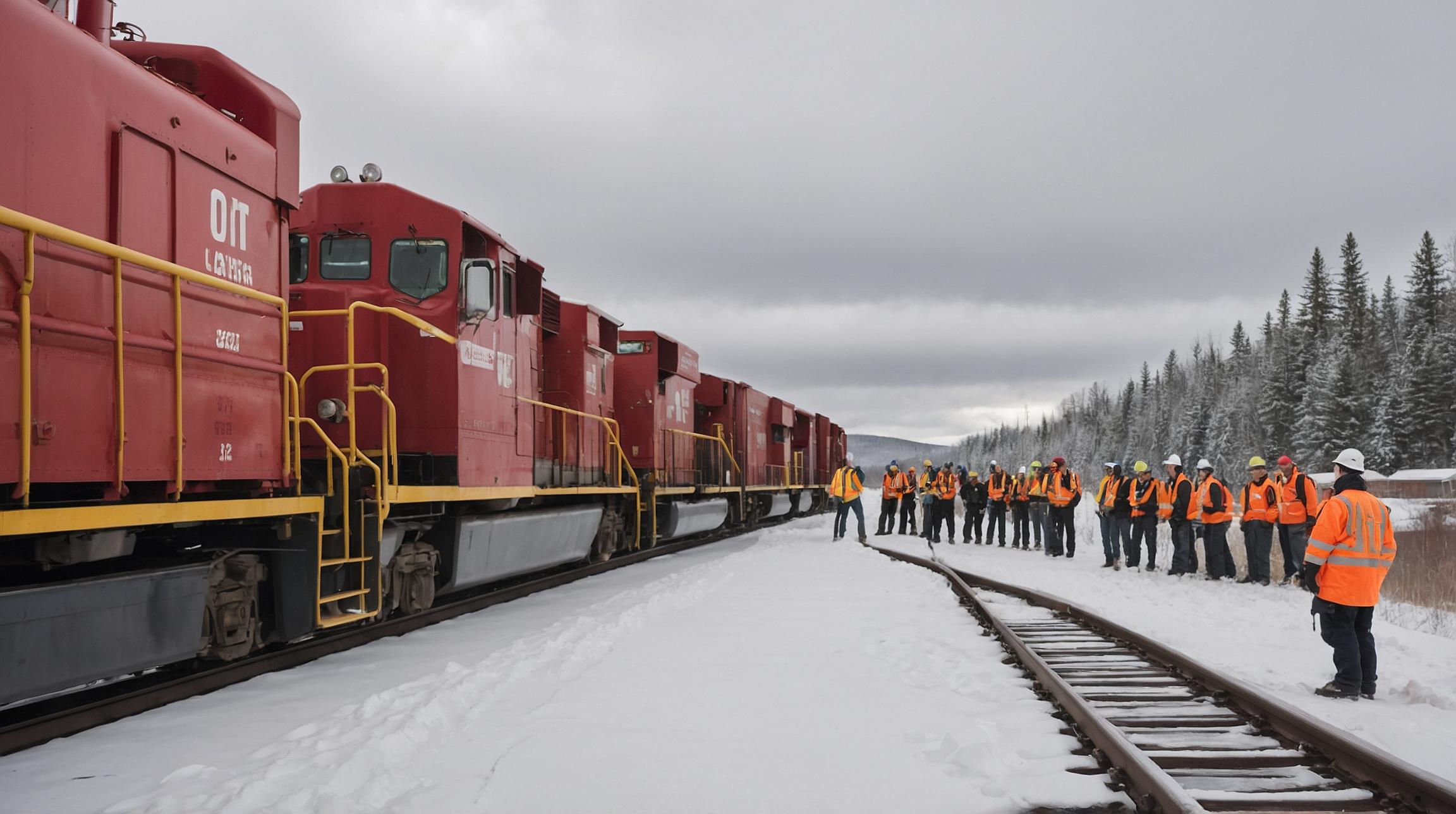Railway Labor Dispute Threatens Major Economic Impact
Canada's freight rail network, a crucial artery for the nation's economy, is on the brink of a significant disruption. This potential standstill comes after Canadian National Railway (CN) and Canadian Pacific Kansas City (CPKC) issued lockout notices to the Teamsters union, representing close to 10,000 employees. Should negotiations fail, a simultaneous labor stoppage is set to commence from early Thursday, marking an unprecedented event where both rail giants face conflict at the same time.
Potential Consequences of the Rail Stoppage
The looming stoppage could severely hinder the movement of essential goods such as food grains, beans, potash, coal, and timber, which are vital to Canada's export economy. Furthermore, it would disrupt the transportation of petroleum products, chemicals, and automobiles. The economic ramifications are vast, with billions in potential losses, and the stoppage could also affect rail trade across North America.
According to a statement by CN, "Unless there is an immediate and definite resolution to the labor conflict, CN will have no choice but to continue the phased and progressive shutdown of its network which would culminate in a lockout." The company highlighted the lack of progress over the weekend, indicating a significant divide between the parties involved.
Underlying Issues in the Dispute
For CN, the primary contention lies in the proposal to implement a "forced relocation" provision. This would require workers to relocate across Canada for extended periods, addressing labor shortages. Despite multiple offers addressing wages and working conditions, CN states that their proposals adhere to government-mandated duty and rest period regulations.
In contrast, the dispute with CPKC centers around safety issues. The Teamsters union claims that CPKC aims to weaken their collective agreement, particularly provisions addressing safety-related fatigue. This could compel crews to work longer hours, increasing accident risks. CPKC, however, asserts that their offer maintains current work rules and meets new regulatory standards for rest without compromising safety.
Union's Stance and Government's Response
In response, the Teamsters union, which includes yard workers, rail traffic controllers, and locomotive personnel, has issued a 72-hour strike notice to CPKC. Additionally, the union has advised its members to treat CN's lockout notice as an immediate strike condition. Paul Boucher, president of the Teamsters Canada Rail Conference, emphasized the need to defend members' rights and safety through these actions.
Both CN and CPKC assure that their operations outside Canada will continue unaffected. However, given their connections to major U.S. rail and shipping hubs like Chicago and New Orleans, and CPKC's reach to Mexican ports, the stoppage could result in widespread ripple effects.
The federal Liberal government has, so far, resisted calls from business groups to intervene, maintaining that the parties should resolve their differences through negotiations.













